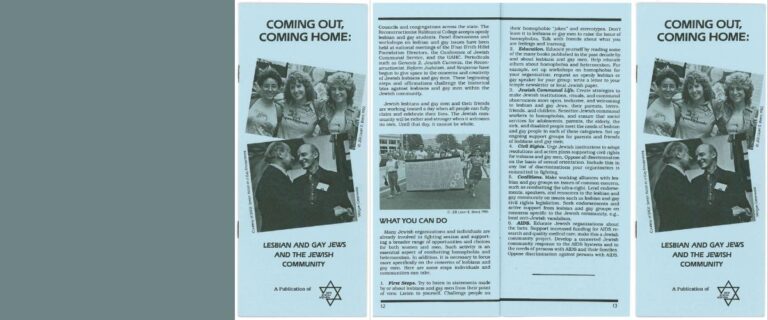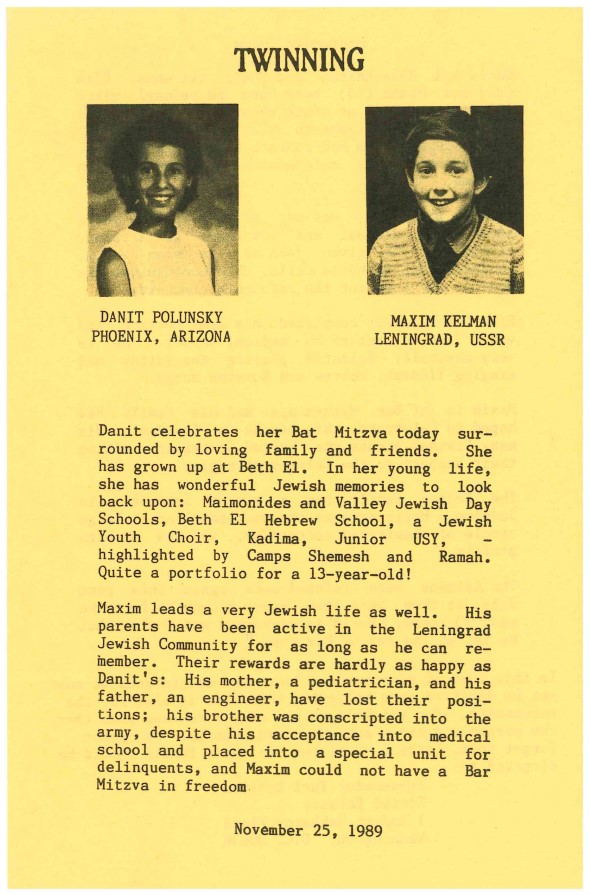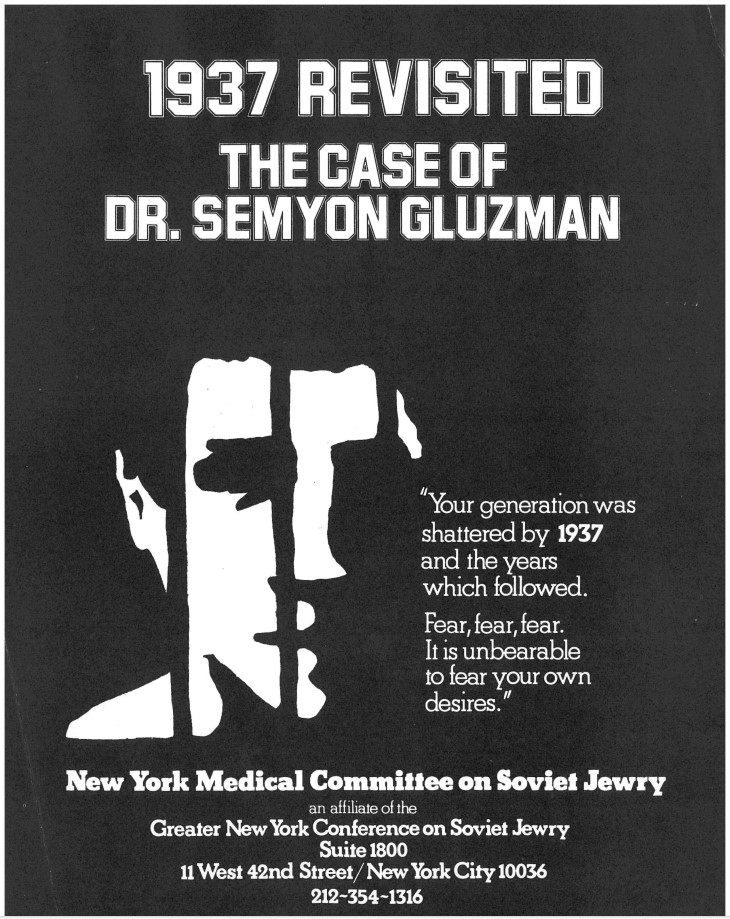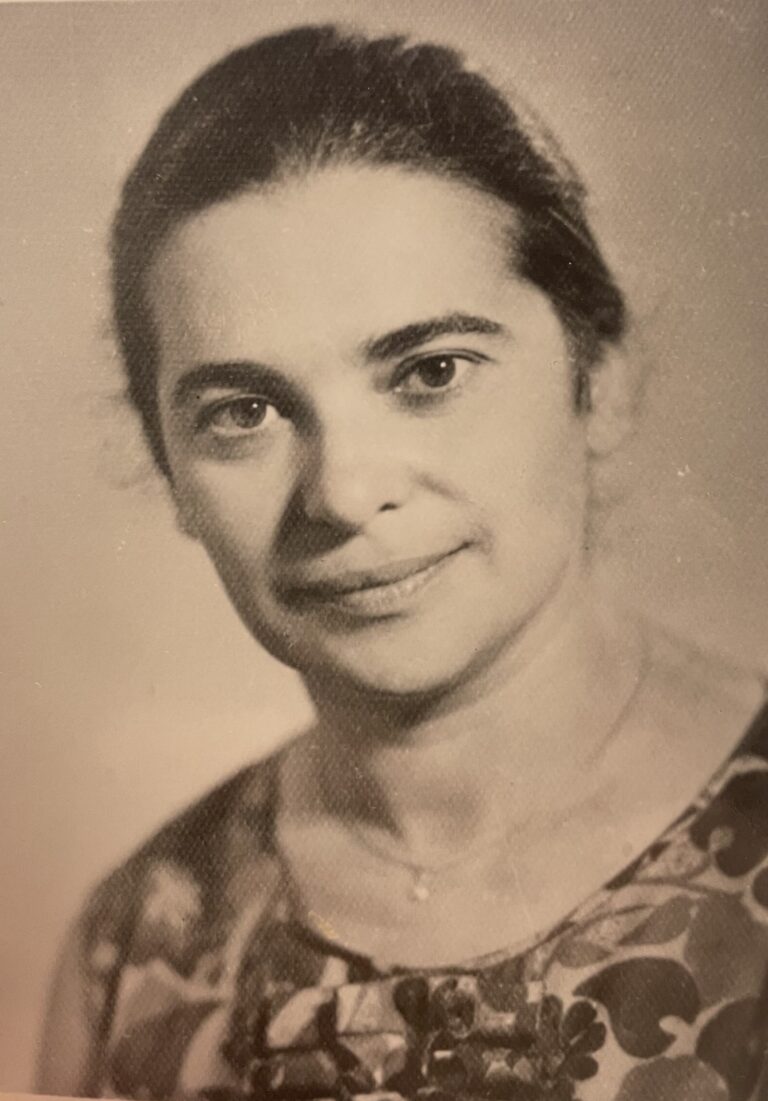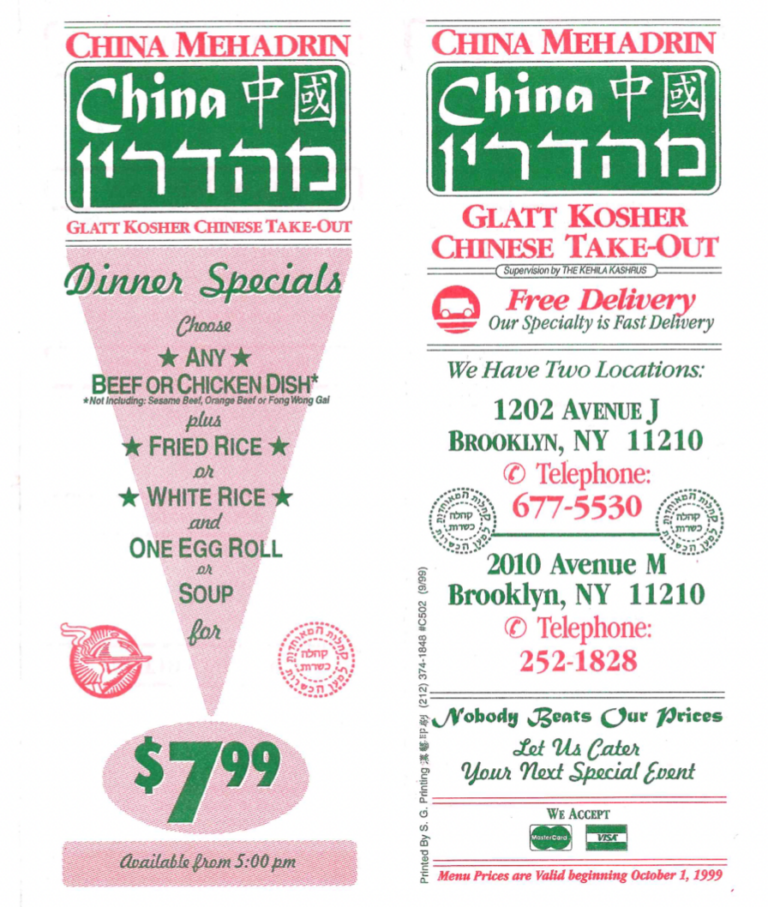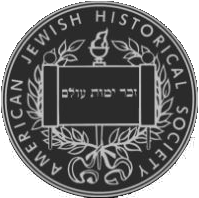The American Jewish Historical Society holds an extensive collection of the National Jewish Welfare Board (NJWB). These fascinating records document the agency’s evolution from its founding in 1917 to provide support for soldiers at the outset of World War I to an agency comprehensively involved in numerous aspects of communal Jewish life both in the United States and abroad. The vast size of the collection necessitates multiple sub-divisions of records, such as the Army-Navy Division records; reports, correspondence, and memos reflect the vast scope of NJWB’s activities in support of Jews in the armed forces during both world wars and in the interwar period.
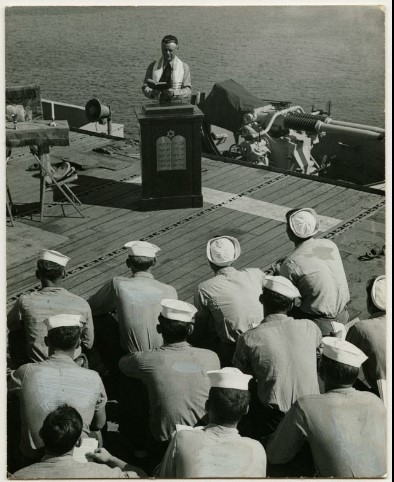
The NJWB acted as support for Jewish officers and military servicemen, as well as to Jewish families affected by the war. Their work was part of The War Efforts Department, which offered government services and built civilian morale. Thanks to the NJWB enlisted Jewish officers were able to continue their practices of Judaism while serving.
Jewish soldiers were permitted to be furloughed from service to observe holidays like Passover, Rosh Hashanah, and Yom Kippur at home with their families. Likewise, Jewish holidays were also observed aboard Navy ships, under the oversight of NJWB chaplains. Examples of letters sent to the NJWB from servicemen’s families express gratitude for enabling, they expressed thanks to the NJWB for taking care of their sons while they were enlisted abroad and keeping their Jewish community ties strong. For example, in July 1942, Esther Davis, the mother of two sons serving with a third about to be drafted, wrote to Chaplain Edward Ellenbogen (above) “There has never been a more crucial period, than our period, when our religion has reached such significance. The excellent work that you are contributing to my son, and the boys at the field, has never been so needed before.” She added about her son, Jack, “It is my sincere wish that Jack should cooperate with you in all your endeavors, and I am certain that he will do all within his power to uphold the faith and loyalty to his forefathers as I have always taught him.”
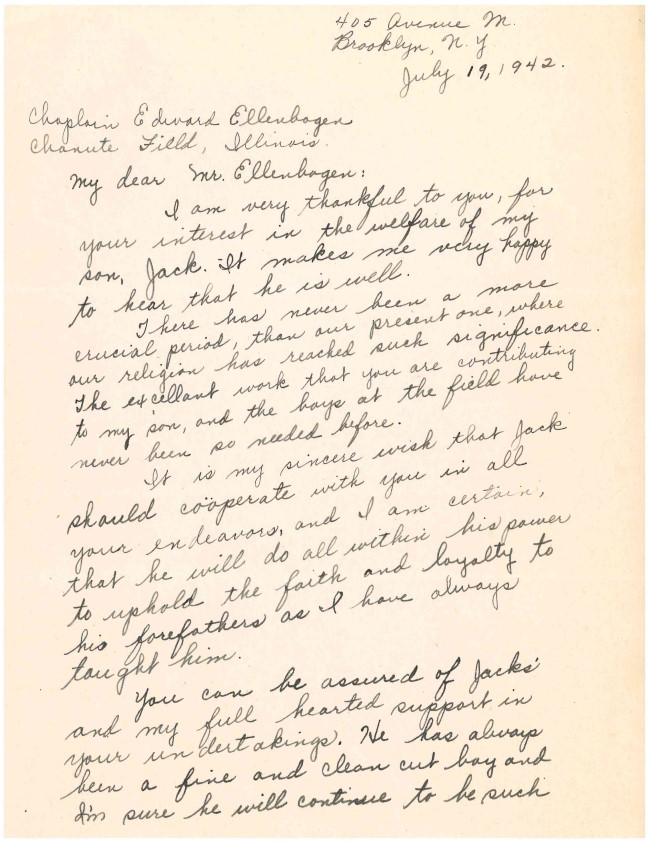
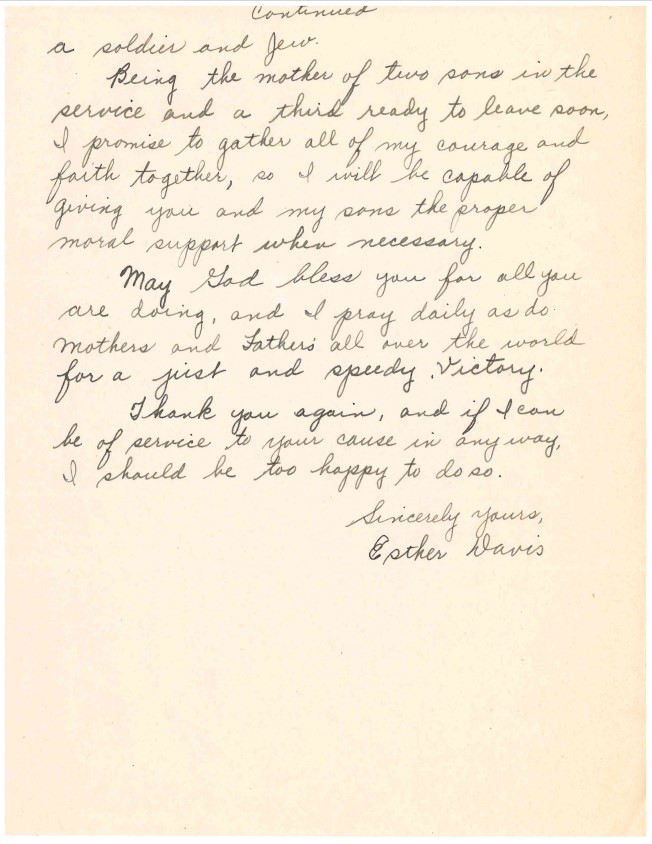

Service leaders working inside the armed forces also noted the positive impact that the NJWB imparted, not only for those individuals who were Jewish, but also their non-Jewish comrades. In a 1944 letter (below), Captain Louis J. Feves of the 38th Bombardment Squadron in San Francisco, CA thanked the NJWB for funding a Passover Seder. The letter cites how the preparation for the meal was completed through the cooperation between non-Jewish and Jewish officers adding, “The point that I make in mentioning this is simply that in the combat area, there is freedom of religion, tolerance, assistance, and even insistence that nothing be left undone to allow for a persistence of this freedom of religion.” It is clear from Captain Feves words that this act of comradery left a meaningful positive impression on him during an otherwise dark moment in history.



